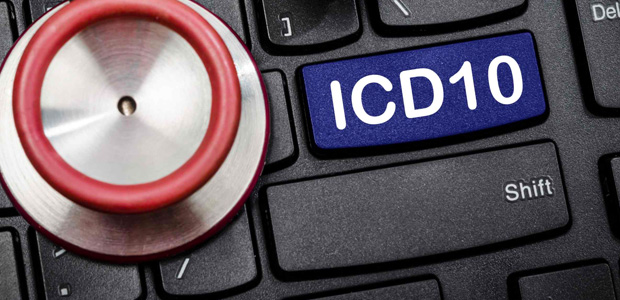
What are ICD-10 Codes?
ICD-10 codes are the tenth revision of the International Statistical Classification of Diseases and Related Health Problems (ICD), a medical classification system used worldwide to classify and code diseases and health conditions. The ICD-10 codes are used by healthcare providers and insurance companies to accurately describe and categorize medical diagnoses, treatments, and procedures.
ICD-10 codes are alphanumeric and consist of three to seven characters. The first three characters identify the disease or condition, while the fourth through seventh characters provide more detail about the specific manifestation or complication of the disease. For example, ICD-10 code A00.0 represents cholera, while ICD-10 code J44.9 represents chronic obstructive pulmonary disease (COPD) without specification of episode of care.
ICD-10 codes are used in healthcare to classify and code diseases and health conditions. They are used to accurately describe and categorize medical diagnoses, treatments, and procedures.
ICD-10 Standardized System
The ICD-10 codes provide a standardized system for recording and reporting medical information, which is essential for several purposes:
- Research and Analysis: ICD-10 codes are used to track disease patterns and trends, and to understand the impact of various diseases and conditions on the population. This information is used to inform public health policies and improve healthcare outcomes.
- Patient Care: ICD-10 codes are used to track the care of individual patients and to develop appropriate treatment plans. They help ensure that patients receive consistent and appropriate care, regardless of where they receive it.
- Reimbursement: ICD-10 codes are used by insurance companies to determine the amount of payment for healthcare services. The codes are used to verify that the services provided are medically necessary and to ensure that the appropriate payment is made for each service.
- Data Collection: ICD-10 codes are used to collect and report data on diseases, treatments, and procedures. This information is used by healthcare providers, researchers, and public health organizations to identify areas for improvement and to track progress in improving healthcare outcomes.
In short, ICD-10 codes play a crucial role in the healthcare system by providing a standardized system for recording and reporting medical information. They are essential for tracking patient care, conducting research and analysis, and facilitating the reimbursement process.
The use of ICD-10 codes is important for several reasons. Firstly, it provides a standardized system for recording and reporting medical diagnoses and treatments, which is essential for research and analysis of disease patterns and trends. Secondly, it allows for the accurate tracking of patient care and the development of treatment plans. Thirdly, it facilitates the reimbursement process for healthcare services, as insurance companies use ICD-10 codes to determine the amount of payment for a particular service.
In the United States, the ICD-10 codes became mandatory for use in medical billing on October 1, 2015. Since then, healthcare providers and insurance companies have had to make significant investments in training, software upgrades, and other resources to ensure compliance with the new coding system.
It is important for healthcare providers to keep up-to-date with the latest version of the ICD-10 codes, as the codes are periodically updated to reflect new medical knowledge and advances in medical treatment. The World Health Organization (WHO) is responsible for maintaining the ICD codes and publishes regular updates to the system.
How are ICD-10 Codes Used in Healthcare?
An example of how ICD-10 codes are used in healthcare is as follows:
- A patient visits their doctor with symptoms of chest pain. The doctor conducts an examination and orders diagnostic tests, which reveal that the patient has a heart attack. The doctor records the diagnosis as “acute myocardial infarction” and assigns the ICD-10 code I21.0 to the diagnosis.
- This ICD-10 code is then used by the healthcare provider to report the diagnosis to the insurance company for reimbursement purposes. The code provides the insurance company with information about the specific type of heart attack that the patient experienced, which is used to determine the appropriate payment for the services provided.
- The ICD-10 code is also used to track the patient’s care and to ensure that they receive consistent and appropriate treatment. The code is included in the patient’s medical record, which is used by other healthcare providers to ensure that the patient receives consistent and appropriate care, regardless of where they receive it.
- In this example, the ICD-10 code provides a standardized and accurate way to describe and report the diagnosis of a heart attack, which is essential for tracking patient care, facilitating the reimbursement process, and conducting research and analysis.
ICD-11 Codes are The Future
The World Health Organization (WHO) released the ICD-11 (International Classification of Diseases, 11th Revision) in June 2018, and it became effective on January 1, 2022. The ICD-11 codes provide a more up-to-date and comprehensive system for classifying diseases and health conditions, and they are designed to be more user-friendly and easier to use than previous versions of the ICD codes.
It is important to note that the adoption and implementation of ICD-11 codes can vary by country, and some countries may still be using earlier versions of the ICD codes. Therefore, it is best to check with your local healthcare authorities to determine the status of ICD-11 implementation in your area.
The transition from ICD-10 to ICD-11 is a complex process that involves updating systems and processes across the healthcare industry, and it can take several years for a country to make the transition.
It is important to note that the adoption of ICD-11 codes by the United States may be subject to change. It is best to check with the relevant government agencies, such as the Centers for Medicare and Medicaid Services (CMS), or professional medical organizations for the most up-to-date information on the status of the transition to ICD-11 in the United States.
Summary
ICD-10 codes play a crucial role in the healthcare system by providing a standardized system for recording and reporting medical diagnoses and treatments. They are essential for research and analysis, tracking patient care, and the reimbursement process. Healthcare providers and insurance companies must stay up-to-date with the latest version of the ICD-10 codes to ensure accurate and efficient record keeping.
Contact Medwave to discuss how we can assist your healthcare practice with your medical billing needs. We are well-versed in ICD-10 and ICD-11 codes.

